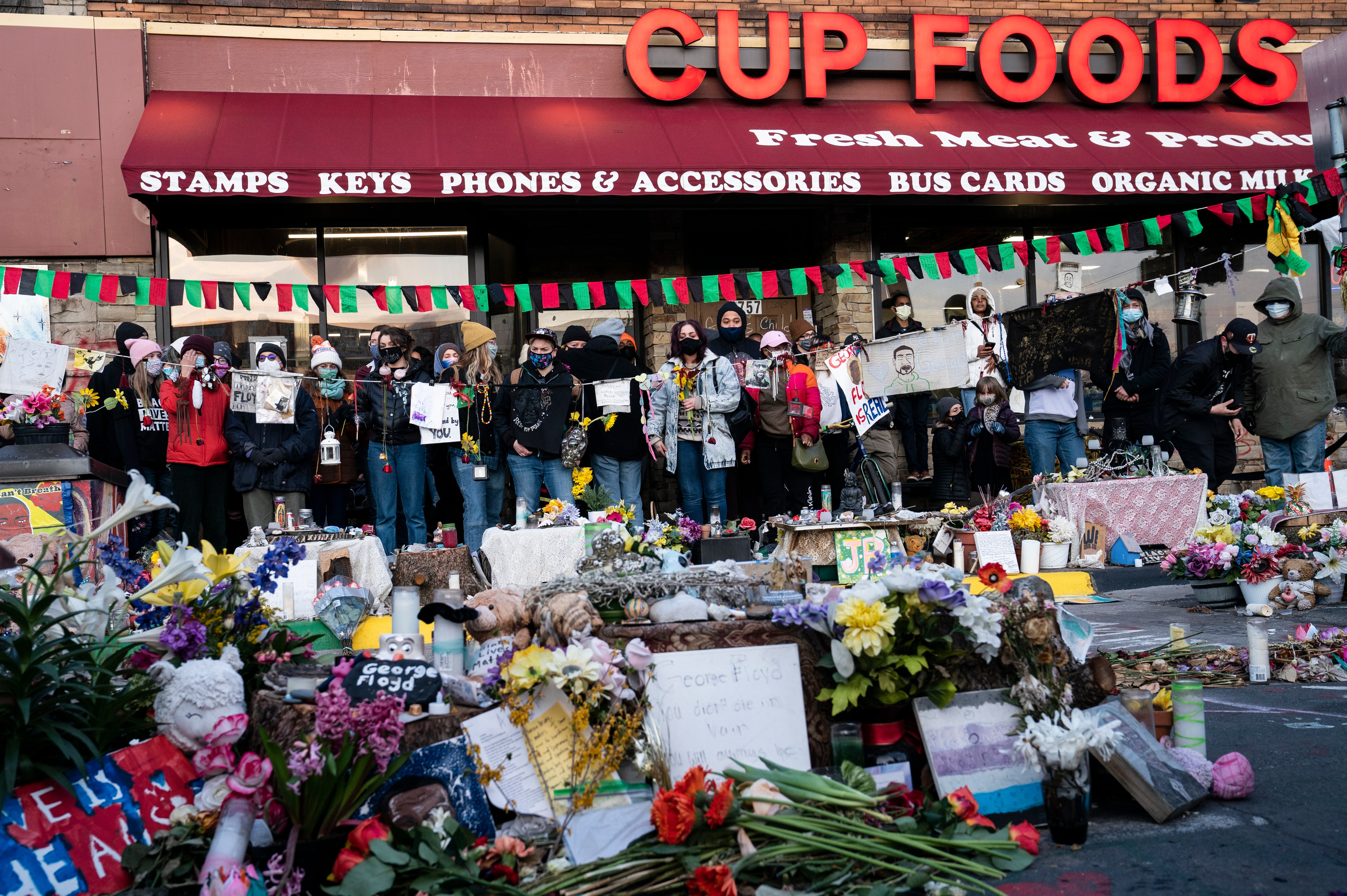Businesses near George Floyd Square demand $30 million to make up for loss of customers since murder
Shopkeepers at the Minneapolis intersection where George Floyd was killed by police in 2020 say business has declined as concrete barricades continue to block vehicle traffic while crime has reportedly risen
Your support helps us to tell the story
From reproductive rights to climate change to Big Tech, The Independent is on the ground when the story is developing. Whether it's investigating the financials of Elon Musk's pro-Trump PAC or producing our latest documentary, 'The A Word', which shines a light on the American women fighting for reproductive rights, we know how important it is to parse out the facts from the messaging.
At such a critical moment in US history, we need reporters on the ground. Your donation allows us to keep sending journalists to speak to both sides of the story.
The Independent is trusted by Americans across the entire political spectrum. And unlike many other quality news outlets, we choose not to lock Americans out of our reporting and analysis with paywalls. We believe quality journalism should be available to everyone, paid for by those who can afford it.
Your support makes all the difference.Shopkeepers at the Minneapolis intersection where George Floyd was killed by police in 2020 are suing the city for the second time in 12 months, saying business has declined as concrete barricades continue to block vehicle traffic while crime has reportedly risen.
The lawsuit, which was filed last week in state court and reported first by the Minnesota Star-Tribune, is demanding the city initiate eminent domain proceedings to take over their properties and pay them $30 million in damages.
In the suit, the owners of the Cup Foods convenience store — now called Unity Foods — and other nearby small-business owners accuse Minneapolis officials of botching its response in the aftermath of Floyd’s murder, claiming, among other things, that the barriers they erected have cut off the area, which has since been renamed George Floyd Square.
Although the spot has become a magnet for activists and supporters, the businesses say they feel left behind as plans emerge to remake the area around 38th Street and Chicago Avenue.

An initial suit, claiming negligence and nuisance against the city, was dismissed in September.
About the refiled claim, attorney Michael Healey, who is representing the businesses, told the Star Tribune, “[T]he folks that still own businesses there could conceivably keep the property if a settlement is reached with the city on the diminished value. The other possible outcome is the city grants the writ and initiates an official taking of these properties in which case they will definitely have to be paid something. That would have to be litigated.”
A spokesperson for the City of Minneapolis declined to comment on the legal action itself, but said the city “understands the challenges that residents and businesses have confronted in the wake of George Floyd’s murder.“
It has spent nealry three years conducting community workshops and other outreach activities to figure out the best way forward, and last month released a plan of action regarding next steps. The “vision report” includes ideas for new parklets, better street lighting, upgraded sidewalks and streets, and improved access for public transit.
Construction could begin next year.
Former Minneapolis Police Officer Derek Chauvin pleaded guilty in 2022 to federal civil rights violations over Floyd’s murder, kneeling on his neck as the 46-year-old lost consciousness and died.
Floyd was stopped by cops after a storeowner accused him of passing a counterfeit $20 bill.
An initial police report mentioned nothing about Chauvin cutting off Floyd’s airway for nearly 10 minutes as he struggled to breathe; bystander video subsequently emerged that turned the case into an international cause. Chavin was sentenced to more than 20 years in federal prison.
He was also found guilty on state charges of second- and third-degree murder. The Supreme Court later declined to hear Chauvin’s appeal.